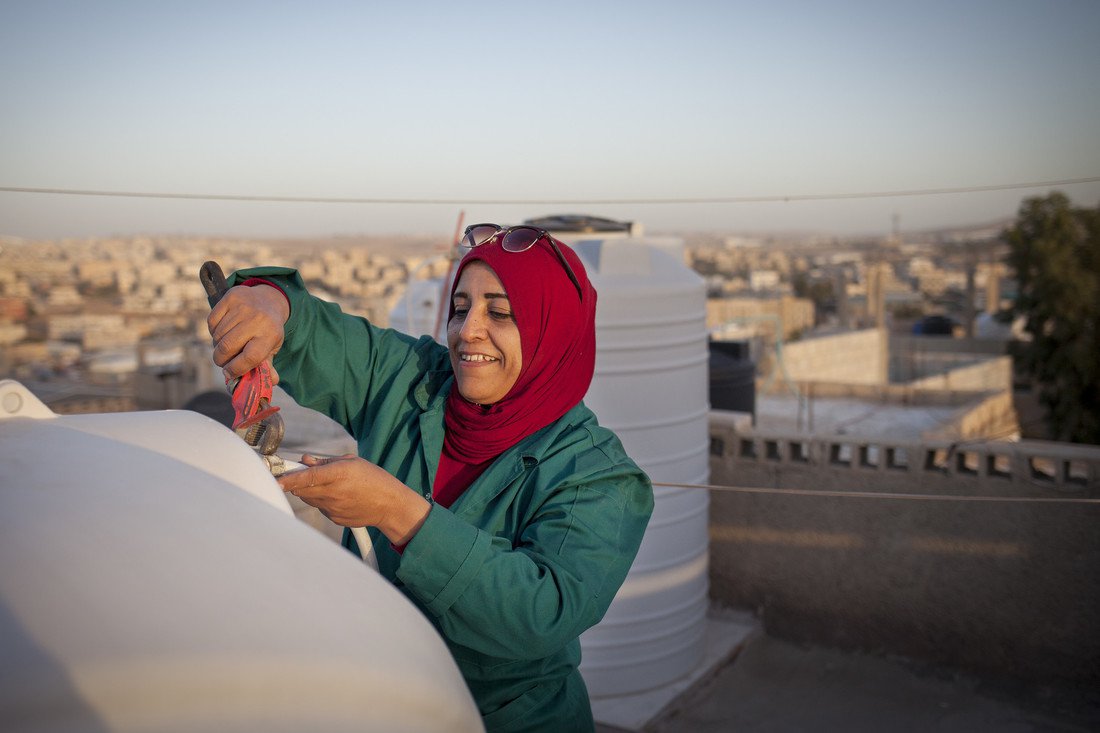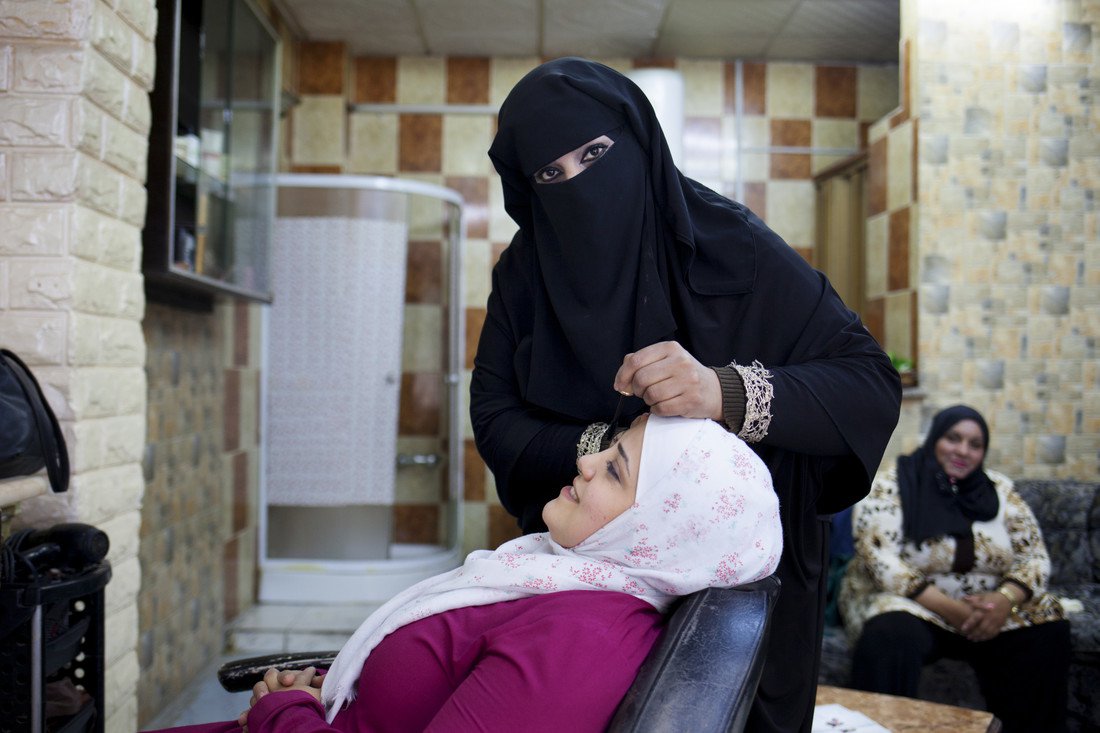Female plumbers plug leaks in Jordan’s water system
Water scarcity is a major problem in Jordan, which has one of the lowest levels of water accessibility in the world. And with more than 650,000 Syrian refugees seeking refuge there, the increasing population has placed a great demand on the water system.
Every last drop counts when the country’s resources are draining. And unfortunately, over 40 percent of Jordan’s water is lost through leakages.
With water supplies dwindling, pluming—a skill that is often undervalued—has become essential for preserving public health and sanitation. When Oxfam launched its Addressing the Water Needs of Jordan Hosting Communities (AWANE) program, we made training plumbers, particularly women, who are primarily responsible for managing water use at household level, a priority.
With funding from the Canadian government, we trained more than 400 women on basic plumbing skills to fix leakages in their homes, increase community awareness, and ideally, enter the labor market.
Breaking into a traditionally male industry
Mariam Tawfeeq Matlaq picked up her first wrench five years ago, and went into business shortly thereafter.
“As soon as I received the training to be a plumber, I had a dream to open a shop,” she says. “There are other areas where the community accepts women plumbers more, but I chose to open my shop here [in Amman].”

It wasn’t easy for Matlaq to establish herself in a male-dominated industry. “There are negative perceptions of a woman plumbing in my community,” she explains. “The competition between me and the male plumbers can be difficult.”
One person she can count on for support is her husband. He’s the person who encouraged her to sign up for training, and he also encourages her to keep going when any obstacles arise.
Matlaq has trained many other women in Amman and recommends them for jobs when she can. “Women here want to work,” she says. “We want opportunities, but often there aren’t any for us. We need support from organizations to keep growing these opportunities for women.”
And it’s not just women Matlaq employs. The list of plumbers she works with that hangs on the wall above her desk includes men. “The men that work for me are happy to work for a woman.”
Becoming her own woman

Fatima Mousa Mohammed Dabouh was 14 when she got married. “I wore sneakers at my wedding,” she recalls. “I didn’t know what marriage was.”
Now 44 and divorced, she is financially independent for the first time in her life—thanks to her plumbing training.
Raised in a conservative family, Dabouh did not leave the house before she took up plumbing. When she showed up for training, even the AWANE community partner organization was hesitant to accept her because she wears a niqab, which covers her face.
“It isn’t culturally accepted [to be a plumber], but women should challenge this,” she says. “I am a divorced woman—I don’t want to go and ask my father or my brother for money. I want to have my own income.”
Standing up to her family and community has been an uphill struggle for Dabouh, but the result has been a new-found confidence.
“Nine months after I did the training, my father was building a new house and I asked him if I could do the plumbing,” she recounts. “He refused and hired a male plumber, but he did everything wrong and messed it all up. Secretly, I went and fixed everything and then I told my father what I had done; now they all believe in me."
Spurred on by spunk and determination, she has built not just one, but two businesses from scratch. Her nephew is training to be a plumber, and Dabouh envisions her turning her service into a family enterprise. And with the money she’s earned as a plumber, she’s making her dream to own a hair and beauty salon a reality.
“After I set up my beauty salon I started advertising my plumbing services to the clients that come to the salon; I have flyers that I put out in my salon. Now I want to open a hardware store."
